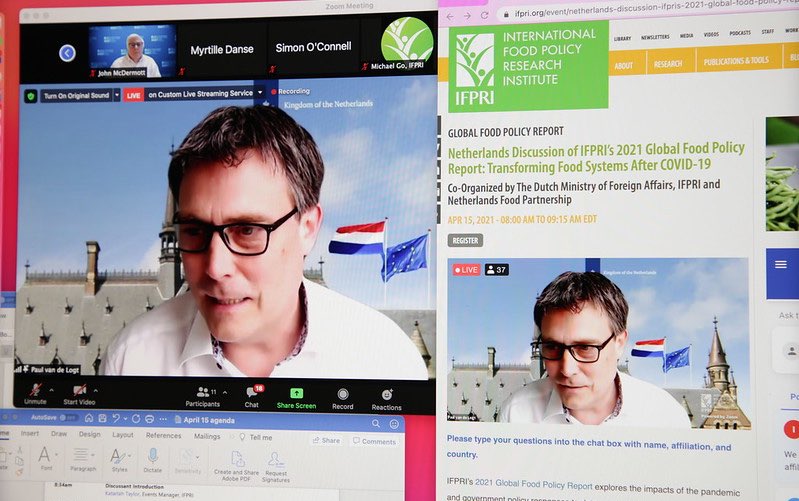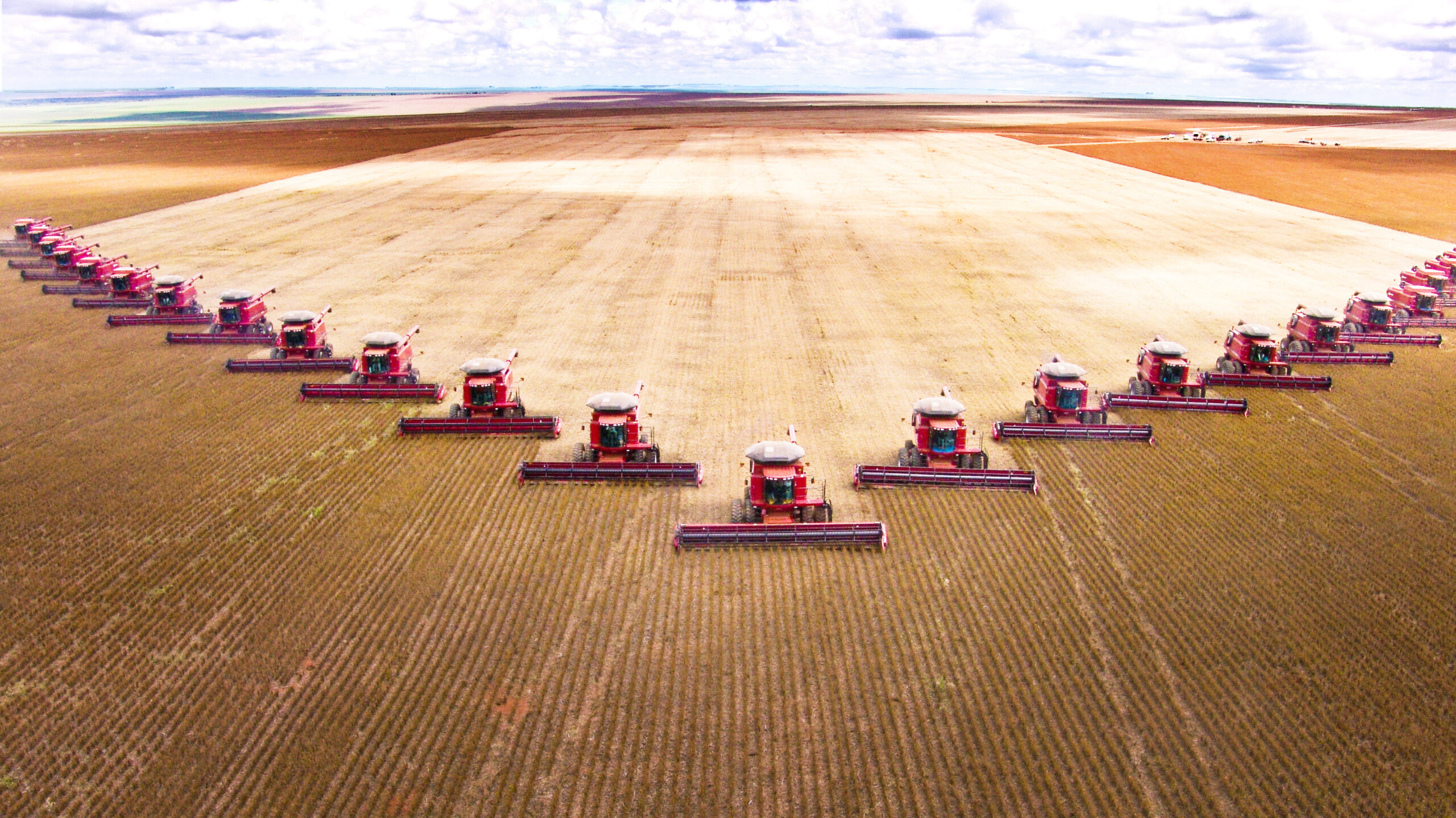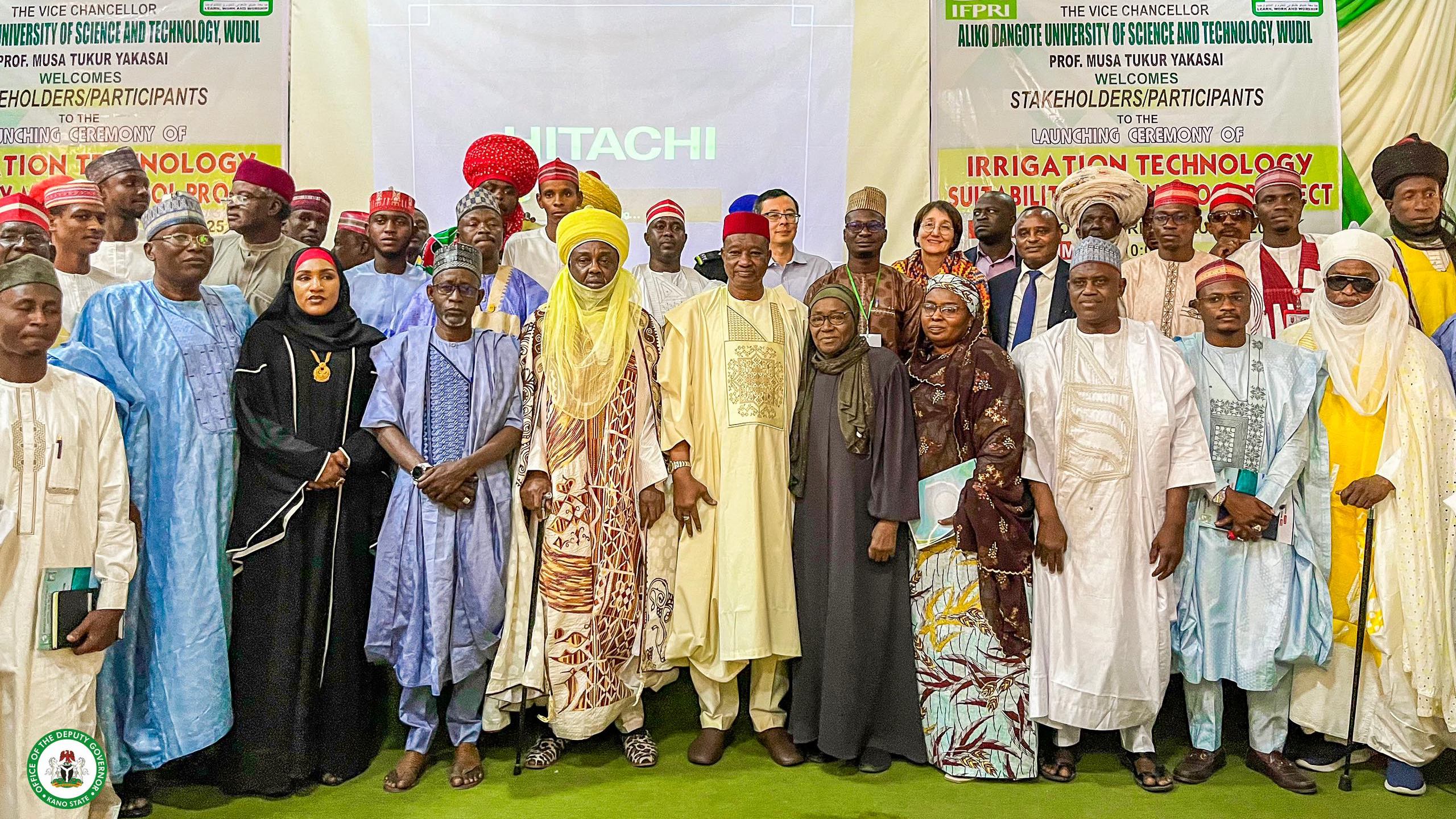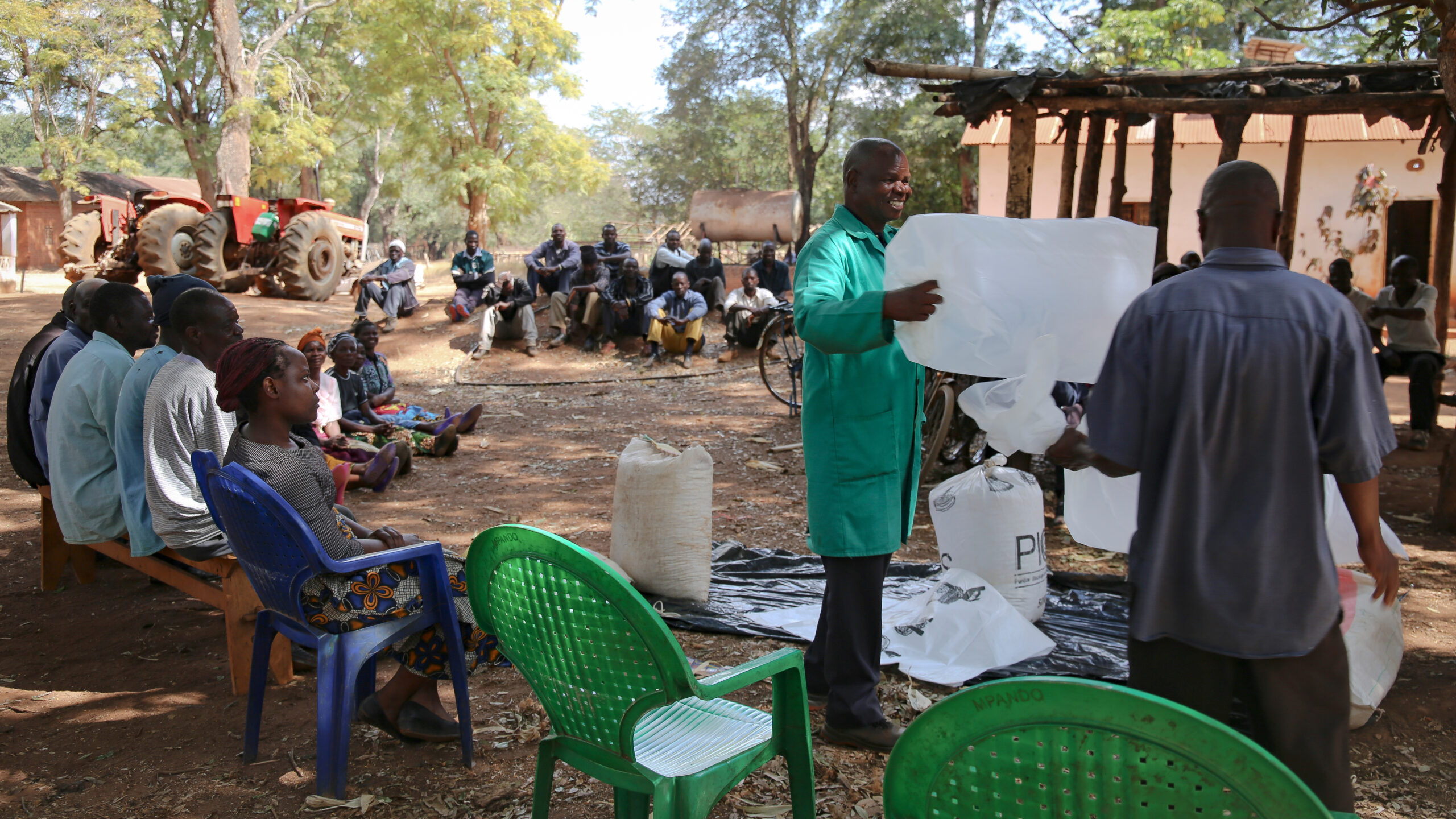IFPRI’s recently-released 2021 Global Food Policy Report (GFPR) is published at a time when the impacts of the COVID-19 pandemic continue to grow. With the 2021 UN Food Systems Summit set for September, the global policy focus is on transforming food systems after COVID-19. An April 15 virtual event organized by IFPRI, the Dutch Ministry of Foreign Affairs, and Netherlands Food Partnership explored insights from report, focusing on the challenges of food systems transformation post-pandemic.
“I am worried when I read this report about what is happening to food security. Not just in the short term, but especially in the long term,” Paul van de Logt, Head of Food and Nutrition Security, Dutc Ministry of Foreign Affairs, said in his opening statement, But he said he is also hopeful that the GFPR can provide important scientific input to reach a turning point where policies are informed by science and their interventions ensure access to healthy diets. “Researchers can be the heroes to guide policies in what we need to do next,” he said.
Reasons for worry and hope
IFPRI Director General Johan Swinnen, John McDermott, Director of the IFPRI-led CGIAR Research Program on Agriculture for Nutrition and Health (A4NH), and IFPRI Senior Research Fellow Neha Kumar presented on the GFPR.
After significant reductions worldwide in malnutrition and hunger, those numbers have been rising since 2014, and now the pandemic is placing more at risk. Three billion people still cannot afford a healthy diet and 2 billion people live with a micronutrient deficiency. The pandemic has also revealed both strengths and weaknesses of our food systems, depending on location; poorer countries and especially women and children have been disproportionately affected by pandemic impacts. Noting that the pandemic is far from over and that we should be prepared for future shocks, McDermott observed: “We better get used to it.”
However, there is also hope that we are at a transformative moment in history, speakers said. To briefly highlight a few of the reasons why:
- We can use the lessons from the crisis to transform food systems.
- The crisis has generated significant creativity and innovation in the public and private sectors. From that, a shift in mindset seems possible, especially with the upcoming global summits in 2021.
- Putting policies in place and political will alone are insufficient as long as the basic policy infrastructure is lacking in adaptability and the ability to scale. But the opportunity to build such structures are there.
- Building greater cross-sectoral coordination will support such efforts. This will require moving away from competition and towards finding alignment.
- There is increasing understanding that both resilience and efficiency have to be integrated in the food systems transformation framework next to health, sustainability and inclusion.
Moving beyond the past by building connections
The discussion kept returning to one main theme: The need to find connections and collaborations that allow for a food system transformation that builds back better.
Frank van Tongeren, Head of the SMART data and modeling unit of the OECD Trade and Agriculture directorate, said he was concerned about the domestic, inward-oriented approach of countries now pumping a lot of money into their own economies to rebuild and restore them; this inward looking character could have a negative impact on moving forward together, he said.
Gerda Verburg, UN Assistant Secretary-General and Coordinator of the SUN movement) said that the report offers valuable insights to ensure policies can be “science-based and research-informed,” and emphasized the importance of ensuring “country-owned and country-led” development in which “locally generated wisdom is not neglected.”
In the Q&A session, Netherlands Food Partnership Executive Director Myrtille Danse stressed the need for building coalitions to achieve system transformation, and asked how the current crisis has impacted cross-sectoral and cross-country coalition development. The GFPR indicates that such coalitions have struggled, but that a lot of collaboration has taken place at the local level and made an impact.
SNV CEO Simon O’Connell noted in a question the vital need for partnerships that push economic, political, and social powers to overcome barriers to innovation and to reaching scale, particularly for digitalization.
Other questions—on youth, smart systems, investments, among other things—showed the wide range of topics relevant to food system transformation and the high stakes of inaction going forward. Overall, the discussion highlighted the need for more collaboration to ensure that post-pandemic rebuilding is not just about local or national benefits, but has a positive impact on the world. To achieve this, Verburg noted, we need to break out of silos, ensure that all issues are treated with equal importance, and start building consensus around a path forward.
Be outspoken, be loud!
It is easy to agree that we should Build Back Better, van de Logt said in his closing remarks, but we should also take care to not make food system transformation so complex that we no longer know where we should start to make it happen. Thus, he said, the importance of knowledge and research should not be underestimated. The Netherlands can play an important role, as the country is a powerhouse with the knowledge and opportunities to make efforts in food system transformation reach scale. Nor should CGIAR and IFPRI underestimate their importance, he said: “CGIAR and IFPRI: Be very present, be very outspoken and inspire us on where we are heading.”
Ying Visser is a Junior Policy Officer for Food and Nutrition Security at the Dutch Ministry of Foreign Affairs; Mariëlle Karssenberg is a Knowledge Broker at Netherlands Food Partnership. This post first appeared on the Netherlands Food Partnership website.







